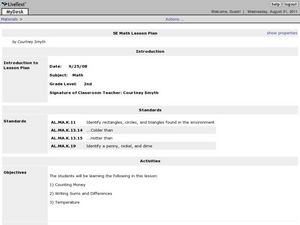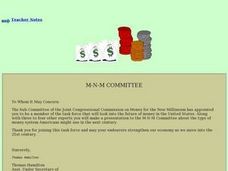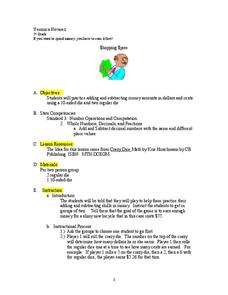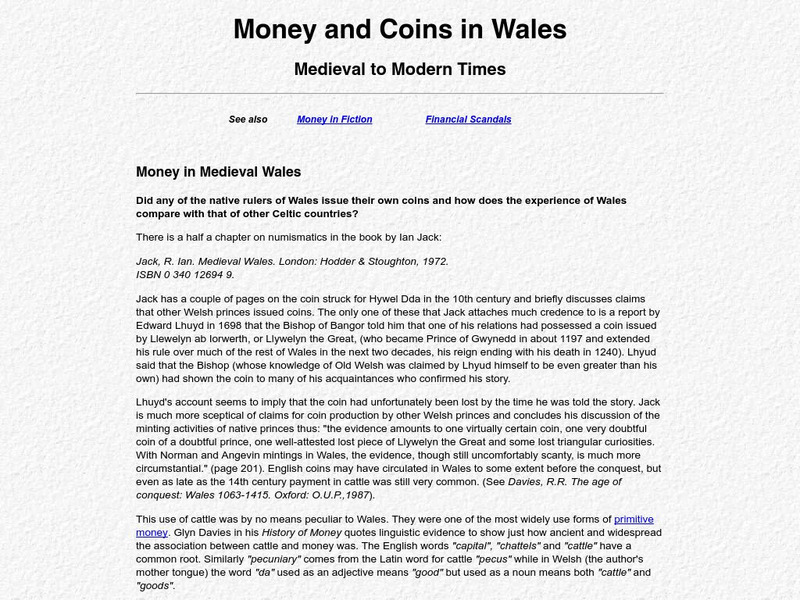Curated OER
Money Vocabulary
Explore the monetary system by completing worksheets in class. Learners will identify the monetary units of England and collaborate in groups to solve money word problems. They also identify several money-related vocabulary terms before...
Curated OER
Buggin' Out (Identifying and Adding Amounts of Money)
Students explore consumer math by participating in estimate exercises. In this currency instructional activity, students identify and define each piece of U.S. currency and their value to the monetary system. Students complete several...
Curated OER
Counting Money Activity
Second graders explore commerce by practicing monetary transactions. For this consumer math lesson, 2nd graders practice using math functions to add and subtract different amounts of money. Students identify the different monetary units...
Curated OER
Baseball Lesson: Barter vs. Money
4th graders view this PowerPoint to recognize the difference between the monetary and barter systems. The author of this resource defines or likens Barter to a swap and misleadingly states that money was invented because bartering took...
Curated OER
Trading Traditions: Based on the American Samoa Quarter Reverse
Students investigate U.S. Currency by researching American Samoa. In this monetary unit lesson, students define the reverse and obverse of a coin while completing a currency related worksheet. Students identify American Samoa on a...
Curated OER
M-N-M COMMITTEE
Twelfth graders research present day monetary policy and read about future suggestions for money. They then create a plan that describes the physical look of money in the future and how it will be distributed in the next millennium.
Curated OER
Shopping Spree
Sixth graders examine currency by completing monetary equations. In this economics lesson, 6th graders participate in a numbers experiment where they roll a die and earn money based on their roll. Students compete for their fictitious...
Other
University of Exeter: The Significance of Celtic Coinage
The author discusses how the use of coins grew, faded, then grew again in Britain, from Celtic times through Roman rule and Anglo-Saxon times. He contrasts the use of coins in Wales and explains why Welsh money developed differently. The...
Other
U.s. Treasury: History of u.s. Currency
This page provided by the Bureau of Engraving and Printing gives the the history of paper money from the colonial notes in 1690 to the currency redesigns of 1996 and 2003.
Massachusetts Institute of Technology
Mit: The Dismal Science: The Gold Bug Variations
This page provides access to the article, "The Gold Bug Variations: The gold standard-and the men who love it." In it, Paul Krugman discusses the relationship between the gold standard and monetary policy. (Nov. 22, 1996)
Other
University of Exeter: Money and Coins in Wales
This article shows the difference in use of coinage in Wales as compared to Britain, Scotland and Ireland. The author has a background in research and the history of finance.
Other
International Monetary Fund: The Imf at a Glance
Key information and facts about the IMF are presented.
Other
Money: What It Is, How It Works: Understanding Government Debt
This article discusses how our monetary system works and the role the government plays. Organized into the following sections: "Government Money," "Treasury Options", "Tax or Borrow?", "Rolling Over Government Debt", and "Net Financial...














